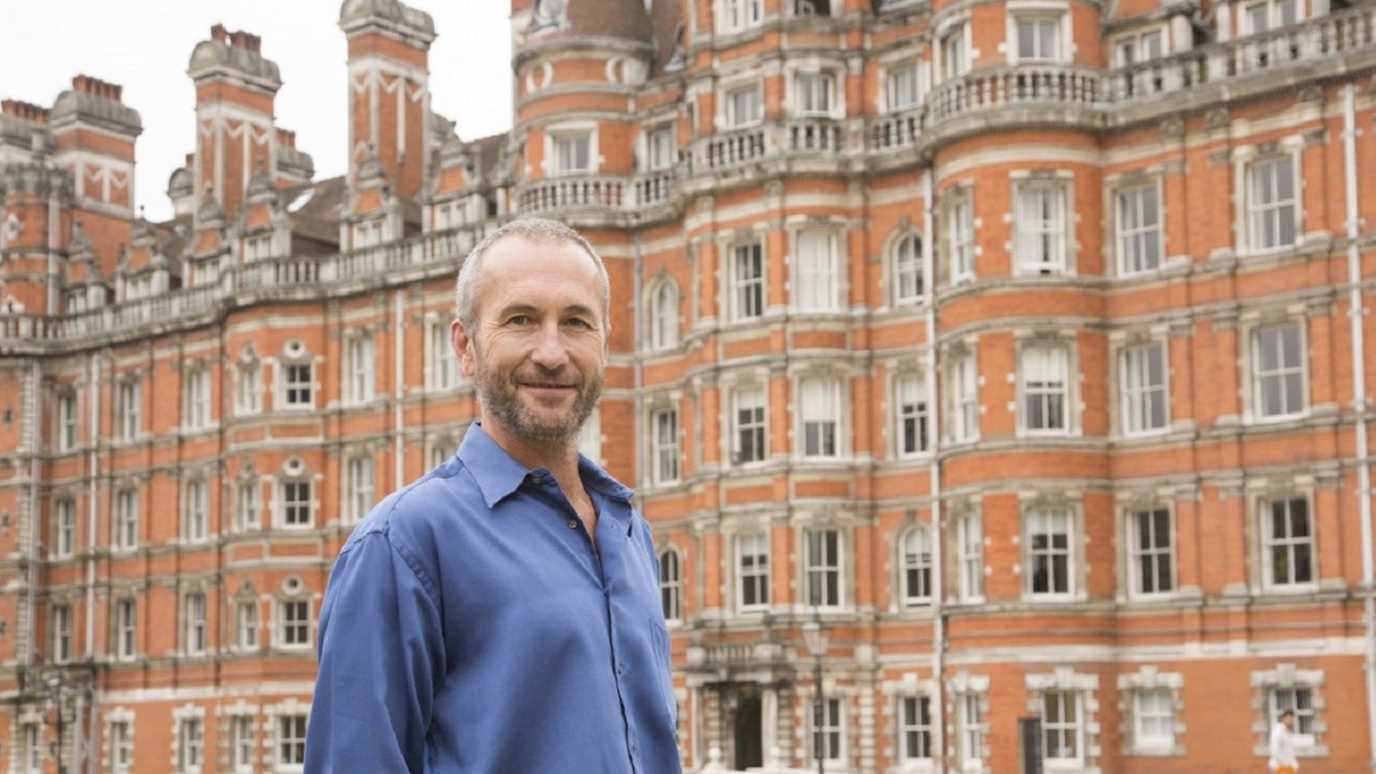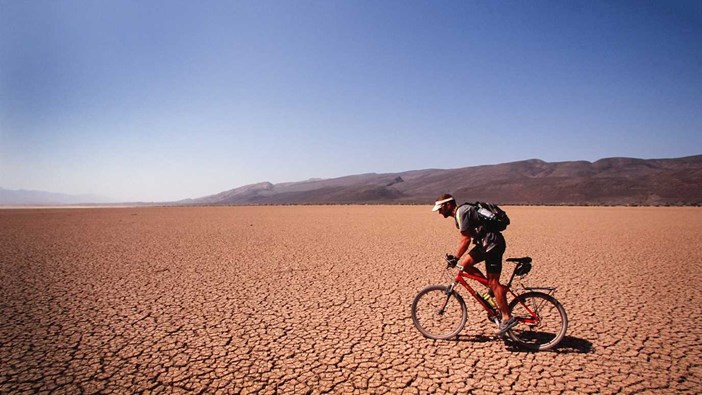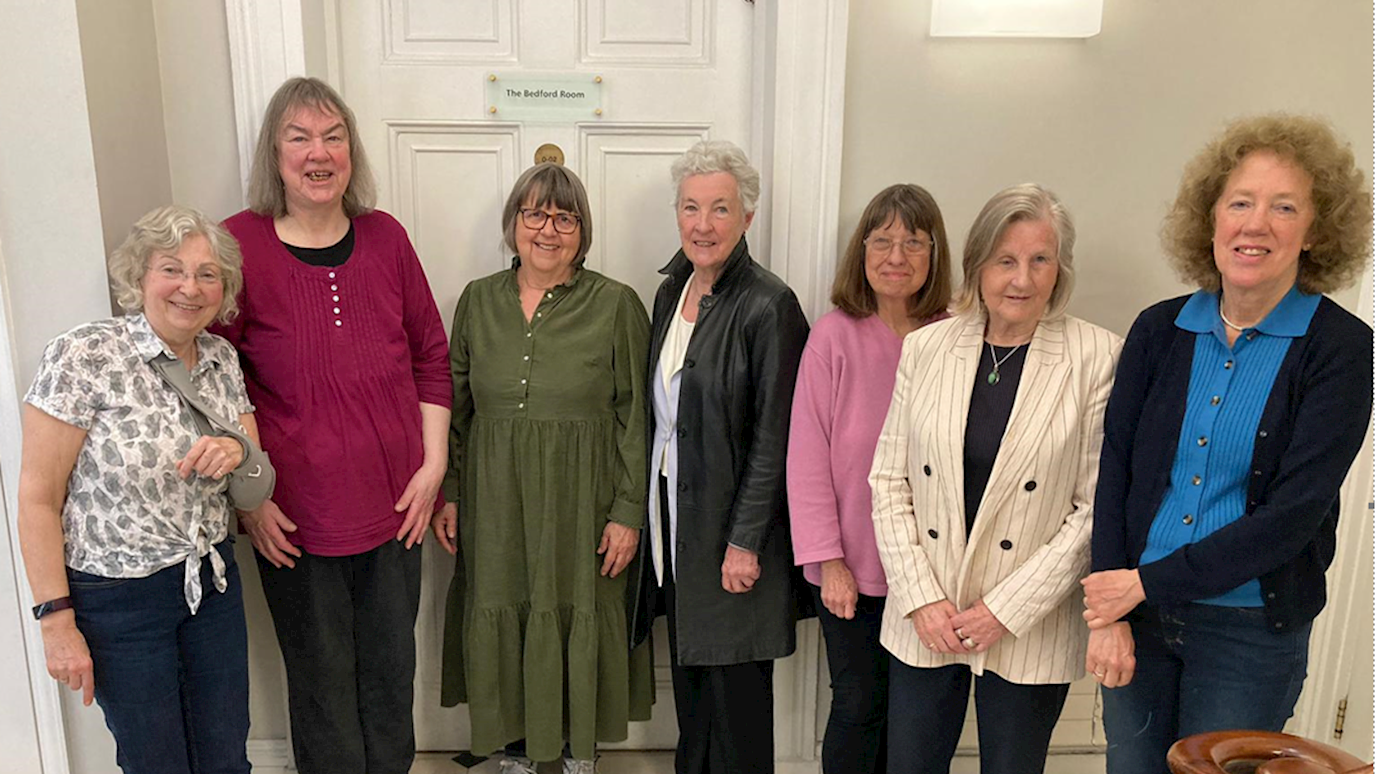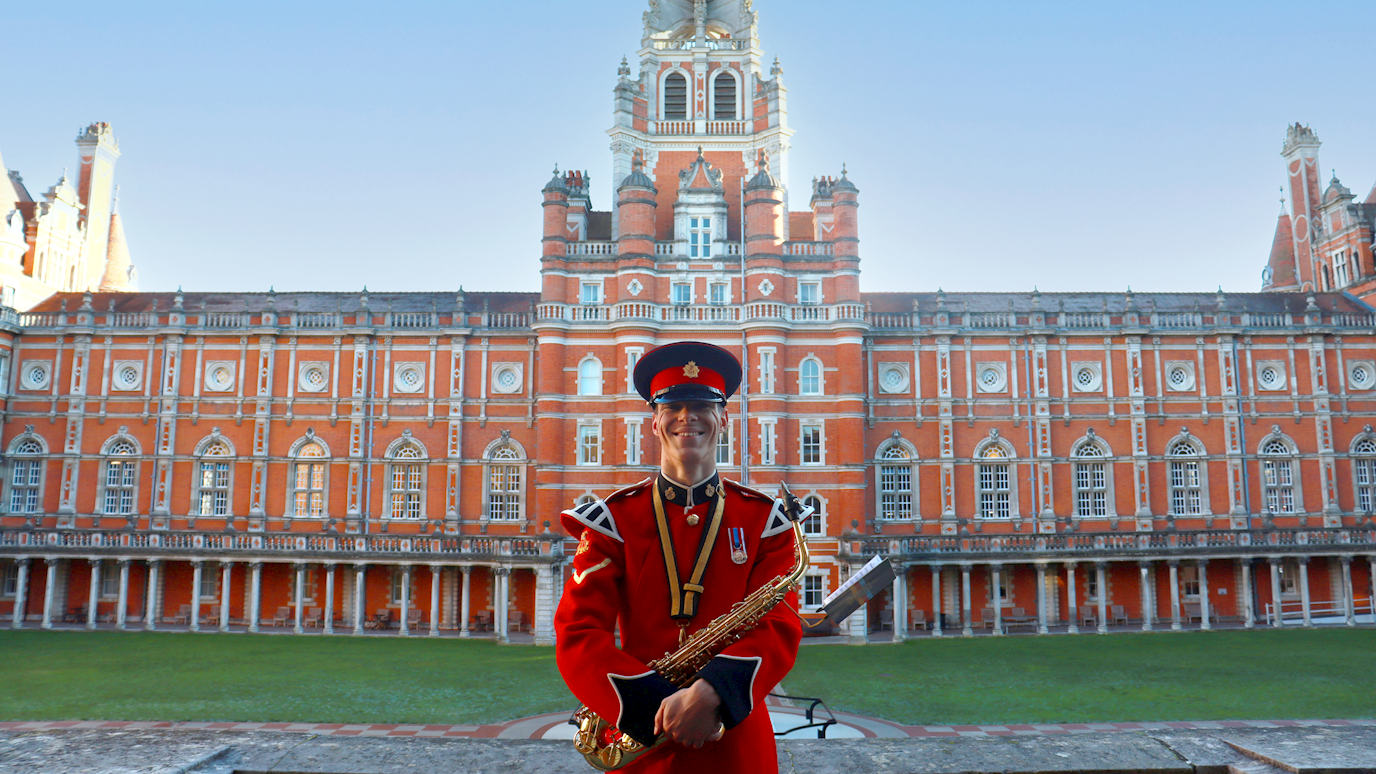Having spent 13 years circumnavigating the globe using only human power, Jason has learned first-hand the impact that consumerism is having on the planet and on societies. As he plans another expedition, he talks to alumna and journalist, Jessica Jonzen, about how he found his purpose.

It’s often the conversations that are had at 3 o’clock in the morning which can be the most illuminating. For Jason Lewis, it was one such chat with his friend Steve Smith in Athlone Hall during his third year as a Geography undergraduate which set him on his path. “Stevie and I shared a common interest in humans, the societies they create, and the natural world that ultimately supports those societies.
“Sustainability as a branch of study didn’t exist back in the late 1980s, but I think we both recognised that it would become THE dilemma of our time, and we’d stay up until the wee hours of the morning discussing these concepts,” says Jason. Years later, after working as an environmental scientist for the Organisation for Economic Co-operation and Development (OECD) in Brussels, Steve suggested something radical: would it be possible to circumnavigate the globe using only human power – i.e. without using fossil fuels? And more to the point, would Jason like to do it with him?
“It was a totally crazy idea, not least because apart from some rather ill-advised weekend trips from Royal Holloway when we’d just take a train, get off at a random stop and start walking, neither of us had any real experience of doing expeditions,” says Jason. Nevertheless, Steve discovered that no one had yet circled the Earth using only the power of the human body – with no assistance from motors or sails. After two years of preparation, the pair set off from the Greenwich Meridian Line on 12 July 1994, and completed the first crossing of the Atlantic Ocean from mainland Europe to North America by human power in 1995. “You really get to know how well you actually get along with someone when they’re always within five feet of you, day after day” Jason admits.

In order to fund the expedition, Jason and Steve had to spend a lot of time raising money. “For every hour of travel there were three hours of fundraising to pay for it, and that became quite wearing after a while. We spent six months in Miami giving free talks at rotary clubs and yacht clubs so we could sell t-shirts or a name on the boat for $20.”
The pair also used the trip to develop an outreach programme to raise awareness of what they were doing. “We worked with UNESCO and ended up visiting 900-odd schools in 37 countries, connecting with young people about the importance of environmental sustainability” says Jason. “That ultimately became my reason to keep on going; it wasn’t just an adventure, it was about doing something useful with the adventure.”
Four-and-a-half years into the expedition, after making landfall in Hawaii, Steve decided it was time to go home. “We’d thought it would be a three or four-year journey in total, and we still had such a long way to go. The endless fundraising was becoming soul destroying, and perhaps not having the same passion as I did for visiting schools, I think it was a relief for Steve to channel his energies elsewhere in a direction that would give him a renewed sense of purpose. Still, it was very weird pedalling off by myself in the boat across the Pacific”
In all, the expedition took Jason more than 13 years to complete. During that time, he became the first person to cross North America on inline skates and the Pacific Ocean by pedal power.

The trip was also held up by unforeseen circumstances, such as Jason being run over by a drunk driver in Colorado and having both his legs broken. “It took me nine months to recover. I’d visit local schools in my wheelchair and give talks to the pupils about the expedition. That’s what kept me focussed” he says. “Seeing the educational component flourish and gain momentum gave me a reason to keep on going.”
What did seeing so much of the world – from the glamorous world of Miami to the remote communities of the Solomon Islands – teach him about humanity? “What became very clear to me by the end was that underneath all the differences that make up the cultures of the world, people are pretty much the same. They want the same things: to live in peace, to have enough food for their family, and an education for their children” he says. “Even in impoverished parts of the world, I found a refreshing awareness in people that the affluence of the West doesn’t necessarily make a person happy.”
Jason also learnt a lot about himself. “Having spent long periods of time living in a tiny boat far from civilization, having to scale down and live more mindfully, that gave me the template for how to live on land. To be happy, and to live more sustainably, I needed to scale down and simplify. I found my purpose through the expedition.”
Jason finally crossed the Meridian Line at Greenwich on 6 October 2007 and was reunited with his family, friends – and Steve. “I think it was a little bittersweet for him, but he was happy to see his original idea finally come to fruition.”
But life back in London had changed, and Jason found it hard to reacclimatise. “I felt like a stranger in my own land. All of my friends had moved on, got married, had children. My perception of home had remained fixed for all those years, but life carries on without us, of course. I might as well have been dead for those 13 years” he says.
The UK had undergone a huge change, too. “We’d had the Blair years and London was awash with money. Cyclists now wore Lycra and spent more on their carbon fibre bike than most people in developing countries earn in a year. I found it hard to find my place.”
He also turned down a six-figure advance from a major publisher for the rights to his story. “They wanted it written in nine weeks by a ghost writer. When I read the draft of the first chapter, I knew the book was going to be rubbish, so I turned the money down.” Unable to afford to live in London, Jason found himself living in a car in California for five months before attempting to write the book himself.

It was around this time that Jason met his future wife, Tammie, who helped him to get back on his feet and suggested setting up a publishing company. In the end, Jason wrote a trilogy about the expedition. “We published the books independently and ended up doing as well financially as if I’d taken the original advance. Writing the story also allowed me to distil the main takeaways from the journey, in particular those concerning sustainability. For a while I had many sleepless nights thinking ‘what have I done!’ But I now know that I needed to turn down that large advance and write the book myself so I could figure out what to do next. Purpose, once you’ve found it, can be lost easily. It’s not always about the money.”
Jason and Tammie still reside in Colorado, living as sustainably as possible: recycling water, using renewable energy, eating a vegan diet, and going back to the ancient art of mending things. “The single biggest thing any of us can do to lessen our impact on the planet is to avoid meat and dairy products” he says. “You can also easily switch to a green energy provider, where your electricity comes from renewable sources, and work out how to fix things. I’ve learnt how to fix my iPhone and computer using YouTube. When you fix something, you also feel empowered. It gives you a greater sense of self-worth.”
What has he most learned to value? “Time. Even with all the supposedly time-saving devices we have, gadgets and apps that are supposed to make our lives easier, we still seem to end up with little or no time to do the really important things in life – like spending time with family, or taking a walk in nature. The trick is to find genuine ways to wrestle time back from our busy routines” he says.
This year, Jason is dusting off his pedal boat to return to the Solomon Islands he visited during his human-powered circumnavigation. “She’s still sea-worthy, and it’s more authentic to go in the same boat. We’ve all have become rather spoiled in the last 50 or so years, and we need to bring back some of the skills and techniques our grandparents can still teach us – how to live better with less.” The expedition will be in partnership once again with Stevie Smith, bringing things full circle, and aims to raise awareness by exploring how remote communities have managed to live sustainably for thousands of years.
“I can’t think of anything more important to dedicate one’s life to at this point in human history than helping solve the problem of global sustainability”, Jason says. “It may sound a little grandiose, but it is the big issue of our time that we have to resolve at all costs. We all have different roles to play, but I know for me that working with young people and the next generation of decision makers, planting seeds about how individuals can change history, that is my purpose.”
Watch the 2018 Sustainability Lecture on YouTube and for more information about Jason’s adventures please visit jasonexplorer.com.
























